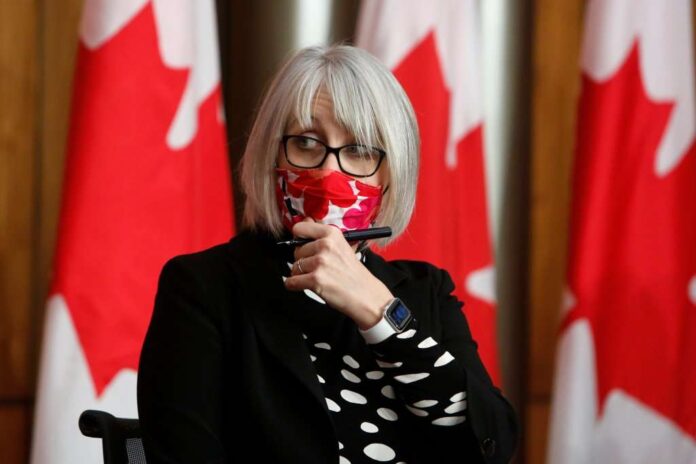
The Canadian government cannot stop private corporations from buying doses of any approved coronavirus vaccine directly from its manufacturer, according to Canada’s federal health minister.
Patty Hajdu said that Canada does not have any “mechanisms to block corporations from purchasing” a vaccine or vaccine candidate “on a contractual basis.”
“These are individual corporations that are selling to a variety of countries and selling to a variety of actors. I don’t know the detail of Pfizer’s, for example, corporate contracts with other countries,” she said at a weekly COVID-19 briefing in Ottawa on Friday.
“But I will say this — anything the Government of Canada procures for citizens will not be sold for a fee.”
Read more: Coronavirus vaccine will arrive in Canada on Monday, government says
Hajdu’s comments follow reports that the National Hockey League is planning to privately purchase doses of a COVID-19 vaccine for all parties involved in the upcoming 2021 season.
John Shannon, an NHL insider and long-time hockey reporter, tweeted the report on Thursday, noting that it’s only an interest of the NHL at this point, “when and if it’s available for private purchase.”
“The league also is adamant that they would not jump the line to do so,” he added. The NHL has not officially commented on the reports.
Back in October, Hajdu came out against private for-profit clinics administering COVID-19 tests for a fee.
Health Canada confirmed it was looking into reports of a number of clinics offering tests for as much as $250, prompting criticism from many that doing so violated the principle of universal access to essential healthcare services enshrined in the Canada Health Act.
At the time, both Hajdu and Prime Minister Justin Trudeau were among those critical voices.
The Canada Health Act allows the federal government to claw back funding it provides for provinces if provinces are found to be allowing the private payment of services deemed essential.
While Canadians typically have to pay for things like prescription drugs, dental care, eye exams, and certain non-essential medical tests, the urgency of the COVID crisis has put the prospect of people jumping the queue by paying for tests in high demand under the spotlight.
However, privately purchased COVID tests remain available, including at pharmacies like Shoppers Drug Mart, which charges $199 for travellers requiring a test turnaround of between 24 and 48 hours.
Members of Parliament, their staff and families also have access to a private testing clinic.
The costs of tests are covered by the House of Commons for MPs, while their staff and families must pay out of pocket.
Read more: Your employer can’t force you to get vaccinated, but experts warn of challenges ahead
In October, Hajdu emphasized that Canada prefers “that there isn’t a two-tier public health system.”
“In fact, the law says explicitly that that should not exist and we have a number of measures that we can take under the Canada Health Act if that’s happening,” she said.
Vaccine supply in Canada, and around the world, will be in limited supply initially and will focus on designated priority groups: residents and employees at long-term care homes, Canadians aged 70 and above, front-line health-care workers and adults in Indigenous communities.
As critics have noted on Twitter, private purchase of the vaccine, at this time, could be seen as depriving the general public of vital medicine.
Response to the NHL’s supposed interest was sharp on social media, with many vehemently against the plan, noting it’s “not the best optics.”
Hajdu, who did not acknowledge the NHL reports, noted Friday that “corporations have always had the opportunity to procure equipment, supplies, tests and medication.”
“And many do around the country,” she continued.
“There are private benefits. For example, I worked previously with many trade unions that have private benefits and private services for their members.”
Coronavirus vaccine doses are expected to start arriving in Canada in the coming days. From there, government officials expect the timeline between vaccine distribution and eligible Canadians physically getting the shot to be fairly quick.
At this point, it’s not even a sure thing the 2021 NHL season is a go. The NHL and the NHLPA have not reached an agreement for the upcoming season, despite setting a target start date of Jan. 13.
— with files from Global News’ Amanda Connelly and the Canadian Press
